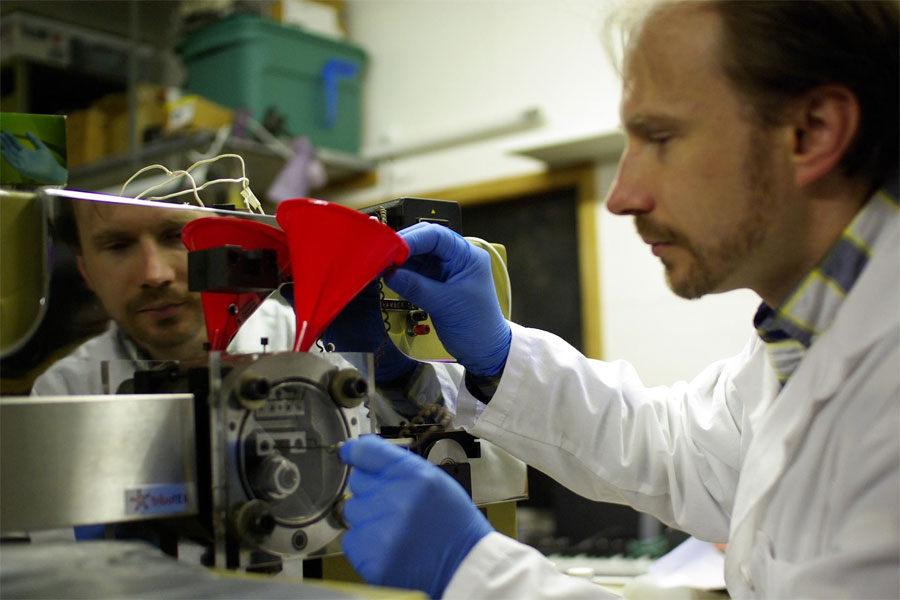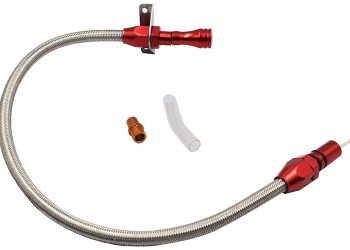Imagine yourself at your first car auction. You are sitting in the middle of a room full of car dealers, professional buyers, and determined amateurs like yourself.
The auctioneer calls out the name of a car, and oh, wait! That is the one you want. Your pulse shoots up to the skies, you can feel the blood rushing to your head, and you try to understand what to do.
While you panic in an attempt to figure out your next step, someone bids for your dream car. You have to save it. And that is when you voice out your entire budget all at once.
From here, two things can happen: Either someone bids a higher sum and gets your dream car, or you bid an even higher amount in this bidding war and lose too much money.
Yes! A car auction can be a very daunting experience, especially if it is your first time. However, Japanese car auction is also the best place to find a very reasonable and cost-effective deal on a car for a person on a budget or a car enthusiast looking for rare cars or classics.
To make your experience extraordinary and for things to go your way, all you need to do is be prepared. Below are the best tips for you to buying at a car auction. Follow these and walk out victorious from a car auction.
1. Make sure to register
The first and foremost tip is that you ensure you are eligible to bid. Most auction houses require you to register beforehand. Therefore, you do not want to reach an auction, excited to get your chosen car, and ending up not being able to bid at all.
Registering is also essential to get a credit number. The auction house gives you a card containing the credit number that you will later raise during an auction to bid. It also tells you whether an auction house wants you to pay in cash or via credit card so that you can be prepared to fulfill all the requirements.
2. Take Precautions – be the smartest person in the room
Once you are registered, move on to the next step. To be successful in a bid, you need to be calm and play smart. For this, you can take the following steps:
· Visit one or two auctions first
To make sure you understand the bidding process and do not fluster or panic, you should visit at least one auction as an observer. Notice each step of the process. Make notes of what to do in what kind of situations. See what strategies professional buyers use. This way, on the day of action, you will be prepared and confident.
· Do your research
An auction is as fast as a horserace where the auctioneer wants to auction a vast catalog of cars in a limited time. Therefore, there is not much time to think. You must know what you are looking for and stick to your chosen items.
For this, before the auction, research all cars that will be available and pick the ones you want to buy. Make sure these fit your budget and, once selected, stick to these items. Do not change your choice last minute only if a car pleases you during an auction. We advise this because you do not know the details of the vehicle and whether it is worth your bid.
· Take someone with you
Impulse drives a lot of your decisions when shopping, even when shopping for an expensive car. Maybe you find yourself trapped in a competition against another bidder, and you keep bidding because you want to beat them at all costs.
Soon you find yourself paying a lot more than you intended, and for a car, you do not even want as much.
Maybe, you want to buy your dream car so bad you go out of your way to get. In such cases, you need to have someone by your side: an unbiased third person who will think sensibly even when your adrenaline takes over your decisions. It should be someone who knows some things about cars and a lot of stuff about bidding.
It is essential to take precautions because the bid you make at an auction is legally binding. Once you have made an offer, you cannot back out, therefore, be wise.
3. Evaluate costs
An important tip is to evaluate how much you will finally pay after making an offer. The end sum is always more than the hammer price because of an additional ‘buyer’s fee’ charged by the auction house.
The buyer’s fee is usually 8-10% of the hammer price. Higher the value of your purchase, the lesser might be the buyer’s fee as a percentage.
Auction houses also provide customers with memberships that require a membership fee. Later this gives a discount on the buyer’s fee.
This fee is recommended to those who want to buy vehicles frequently. However, if your purchase is a one-time thing, purchasing a membership is not recommended. It is best to find these things out beforehand from the auction house’s online services.
Taking precautions is important, but once you are at the auction, you need to be attentive and make sure that you have adapted to the room and its people.
4. Arrive early
A brilliant thing to do at an auction is to reach before time. Firstly, this allows you to examine your chosen items. While a test drive is usually not an option, you can visually inspect the cars you wish to buy in daylight.
You can find out problems such as blemishes or scratches if any. If you think you will not have enough time, do this a day earlier.
Look for any hidden problems, and do not shy out. You will be paying a considerable sum of money, so you do not want issues that will be costly to fix. For example, lift the hood of the car to check for any apparent problem.
Examine the paint for any signs of bubbling that indicate rusting underneath. Also, look inside the car and its trunk for wet carpets that show leakage or any unusual smells. Make sure the seats and carpets are fresh, the music player and other systems are running, and everything is in good shape.
Moreover, use the car catalog given to you and pick at least two backup car options that match your age, color, and feature requirements. Therefore, you will have options in case the one you want to buy is sold. Make sure that these match your price range.
5. Stay vigilant and attentive
Often you make up your mind about a car before getting to the auction house. V is a good practice; however, usually, you let your decision take over you. Melodious music starts to play in your head as soon as the auctioneer begins describing the car you want to buy.
It is crucial to listen to the auctioneer at this point because he explains the details of the vehicle. These details can affect the decision of whether to buy the car or not. The auctioneer usually discusses the following:
- Mechanical faults: These include any significant defects in the gearbox, engine, steering wheel, the transmission, or the brakes. If there are no mechanical faults announced, you can be sure that there would not be any repairs to make that are too costly, and the purchase will be cost-effective.
- Engineer’s report: This shows that a professional, a mechanic, or an engineer has examined the vehicle, and the report is read out loudly. All their observations, such as the vehicle’s faults, are contained in the report. It should, therefore, be heard carefully as an expert’s view is always the best. You may also find the report displayed in the window of the car before bidding starts so you can have a look then too.
- Faults the seller has specified: Often, sellers inform the auction house of particular defects in the vehicle. These are usually less costly to repair and rarely affect the buyer’s decisions. However, we always advise you to be aware of the costs of repairing different faults and factor in those costs before bidding.
6. Avoid bidding first
Even if you are tempted, do not bid first. This is because, mostly, the price that the auctioneer sets, in the beginning, is higher than the vehicle’s minimum, the reserve price. Therefore, the auctioneer may even reduce it if there are no bidders.
Also, it is always smart to wait until the end before you make an offer to avoid competition and make sure you are making the right choice.
Another tip, do not let the crowd falter your decision. A small show of hands does not mean the car you chose is not good enough. Do your research and stay confident.
7. Check the history of the car
You must ensure that the vehicle you thought you got at an excellent price will not cause you too much trouble. Services, readily available around, can check several things for you:
- Is the car stolen?
- Was the car involved in a severe accident and underwent dangerous damage repairs?
- Is the mileage shown on the vehicle its actual mileage? While this is hard to check now, and illegal in some places, you can still take your chances and find out if it is permitted? Any discrepancies not only reduce the car’s value, but they can also pose a security risk if parts of the vehicle were not maintained over time. So make sure the odometers are not clocked.
- Is there any unpaid (outstanding) finance agreement that the car is a part of?
These factors can reduce the value of a vehicle considerably; therefore, it is best to check these before purchase.
8. Track the service history
When choosing between a car that was frequently used but also often serviced and one that was used less and not serviced regularly, go for the former. These can be cars used by the government, people in business, or industrialists, cars that have a high mileage because they are regularly serviced.
Servicing includes changing oil, frequently refilling water, maintaining the spark plugs, brake pads, and clutch plates as well as others.
9. Check the car’s Vehicle identification number (VIN)
The last nail in the coffin that ensures your car is registered and precisely what it claims to be is to check its VIN. VIN is a unique, universal identification code issued to a vehicle.
It is written on the engine bay or maybe the front door frames. Wherever it is, make sure there is one and that you find it.
10. Be prepared to take your dream car home
Once you succeed in buying your dream car (hopefully), you need to remove it from the auction house as soon as possible. Auction houses are hectic places. Auctions occur one after another, and new cars keep coming in; therefore, they need the space.
If you fail to get the vehicle removed, you might have to pay a large sum as the cost of storage to the auction house.
Therefore, to avoid this, make sure that your auction house has a delivery service and reach out to them. If not, reach out to them to contact delivery services, which will get you a discount too. Otherwise, make arrangements yourself. Just be sure everything is ready.
Conclusion
This article is an extensive guide to buying a car at an auction. Follow the tips carefully, and you will not find yourself regretting anything at all. Your auction experience will become exciting, and soon, you will be taking that car you always wanted home and that too within your budget.
Keep in mind that you can compare auction houses to car dealers who might be offering better warranty and payment options.
Once again, do your research, some of which you did with the help of this article. Then drive onto your journey of getting the perfect car. Happy shopping.














